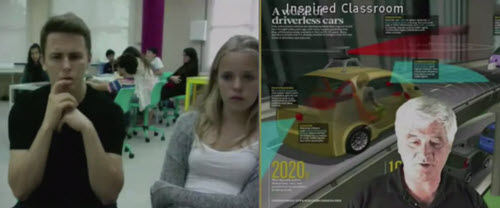North Mankato, Minn. (January 28, 2022) – The Center for Interactive Learning and Collaboration, a veteran expert and thought leader in the virtual learning space, today launched a Black History Month package of fresh and engaging virtual and interactive real-world expeditions for students that cover significant historical, cultural and societal events.
CILC’s 10 virtual fieldtrips transcend other well-intentioned, but often one-dimensional and overly simplified narratives of African American historical figures by providing students with a detailed look at the encounters, achievements, and heroism of everyday African Americans throughout history. In addition to the Civil Rights Era, the fieldtrips cover everything from the American Revolution and its relationship to enslaved African Americans to the impacts of sharecropping and homesteading for Black farmers and western communities to the struggle for racial equality in the military during World War II. These “trips” also examine the meaning of race, the history of jazz, and the myths and misconceptions of Africa.
“These interactive, virtual learning programs break down the walls of the classroom and transport students back into history to witness the generations of African Americans who both struggled and triumphed throughout our country’s history, while also bringing to light current situations that many Black individuals still experience today,” said Glenn Morris, CILC’s executive director.
The live and interactive fieldtrips give students the opportunity to engage directly with museum curators, historians, authors, researchers, and other experts. While virtual expeditions have become more popular in recent years – even more so since the start of the COVID-19 pandemic – the array of real-world programs offered by CILC and its content collaborators, sets them apart from prerecorded, traditional web-based experiences.
Three of the offerings are free to the public, while others have a fee.
The selections below offer an engaging resource to educators who want to expand their Black History curriculum in a unique and authentic manner.
- Diversity of the American West, Booth Western Art Museum
- The History of Jazz, Manhattan School of Music
- African American Trailblazers (free), Pro Football Hall of Fame
- It’s NOT Black or White: How a Museum Defines ‘Race’, Cleveland Museum of Natural History
- Protesting Segregation in Maryland, Maryland Center for History and Culture
- Double Victory: African Americans in WWII, The National WWII Museum
- Black Homesteaders on the Great Plains (free), Homestead National Historical Park
- Slavery and the American Revolution, HistoryConnects from the Virginia Museum of History & Culture
- The Beauty of Africa, Oiada International
- Farming Family and Slavery at White Haven (free), Ulysses S. Grant National Historic Site
Teachers, school administrators, and childcare professionals are encouraged to browse CILC’s complete library of programs and learn more about free membership opportunities at cilc.org.
About Black History Month
Black History Month was officially recognized in 1976, the nation’s bicentennial, by President Gerald R. Ford, who urged Americans to “seize the opportunity to honor the too-often neglected accomplishments of black Americans in every area of endeavor throughout our history.” Since then, every U.S. president has officially designated the month of February as Black History Month because it coincides with the births of former President Abraham Lincoln and Frederick Douglass.
About The Center for Interactive Learning and Collaboration
The Center for Interactive Learning and Collaboration (CILC) is a nonprofit organization dedicated to connecting young minds to unique and diverse content, breaking down educational access barriers, and narrowing the opportunity gap for underserved communities. Founded in 1994, CILC has been a leader in the interactive virtual learning space before “remote learning” and “virtual experiences” were catchphrases. Over the years, CILC has developed hundreds of partnerships with organizations including museums, zoos, science and performing art centers and delivered 113,000 global programs to 3.5 million students worldwide.CILC is committed to changing lives by making learning accessible, regardless of physical location or financial means. For more information about CILC’s programming or to incorporate programs into a school’s curriculum, please visit cilc.org.

:max_bytes(150000):strip_icc()/Health-GettyImages-1239099323-30991676ea1b48f8a3555d8a9b7b2bcf.jpg)




